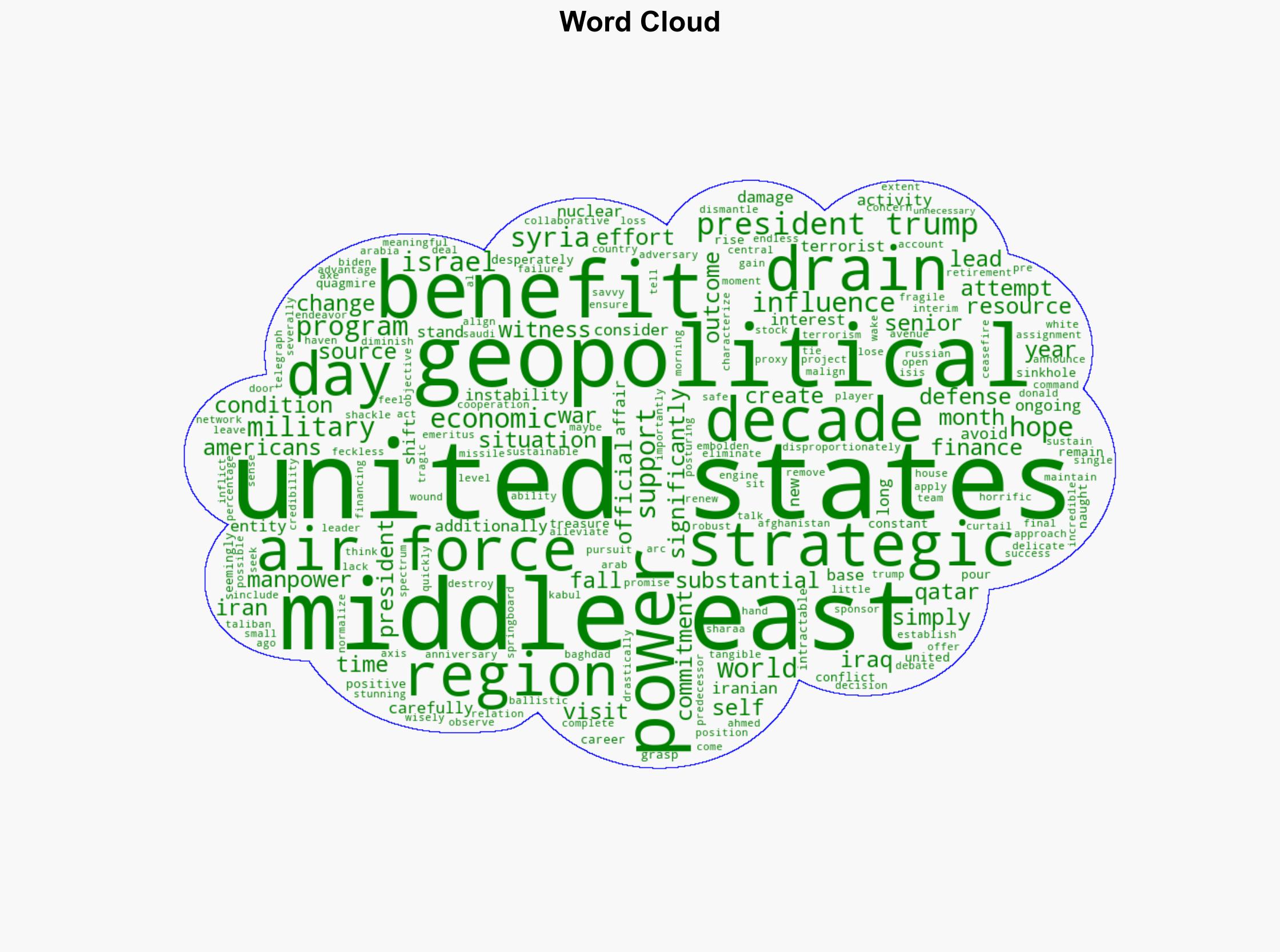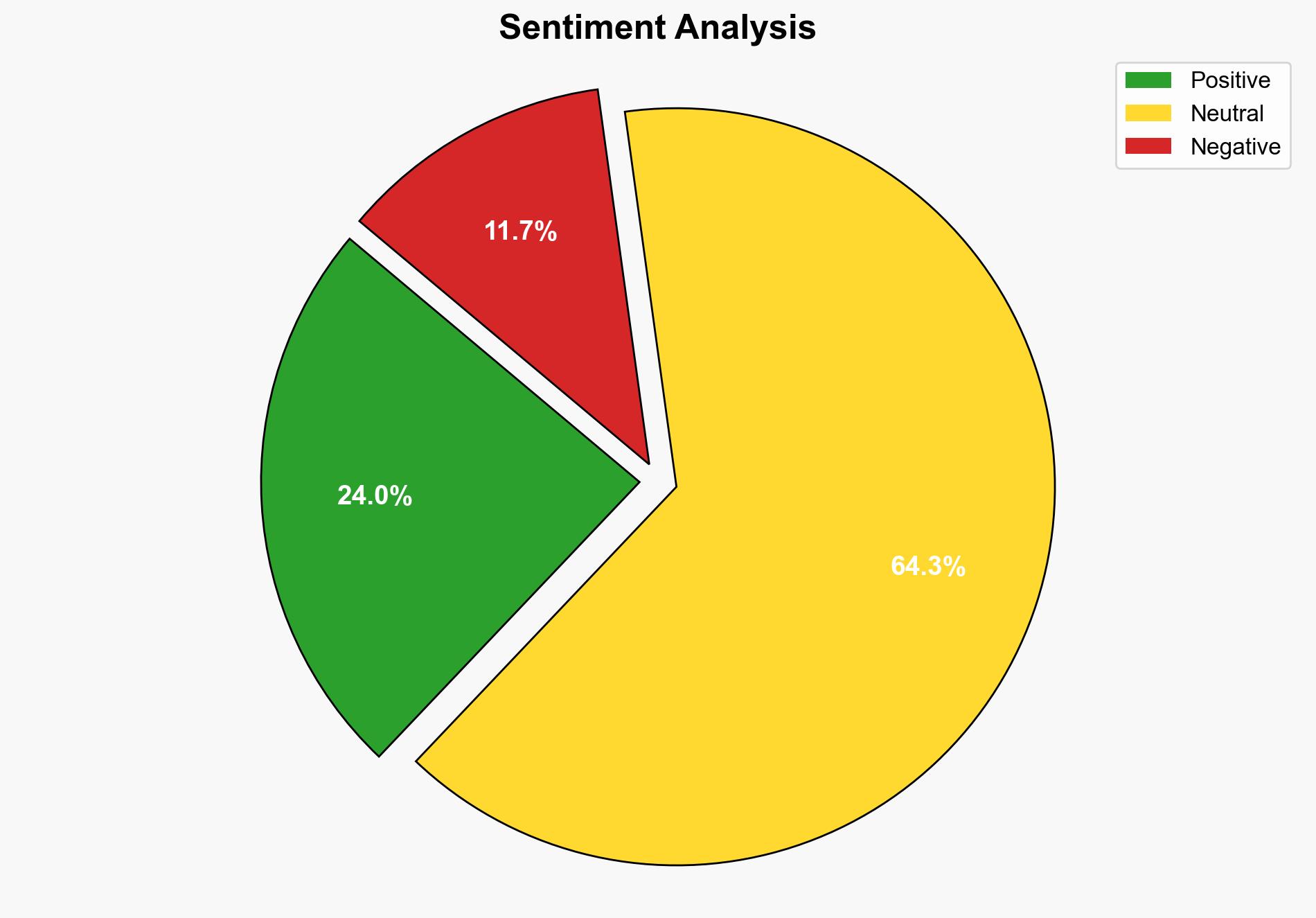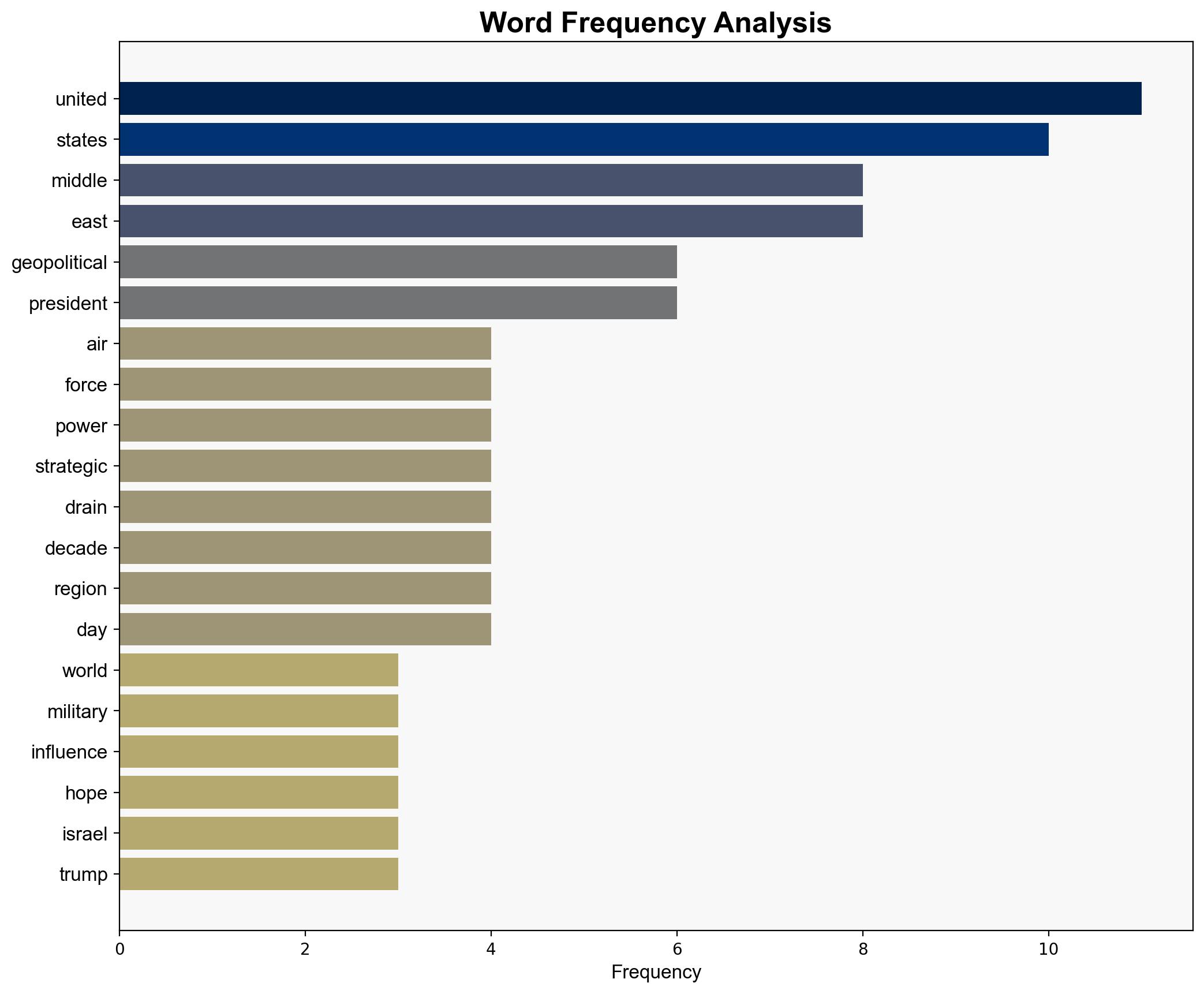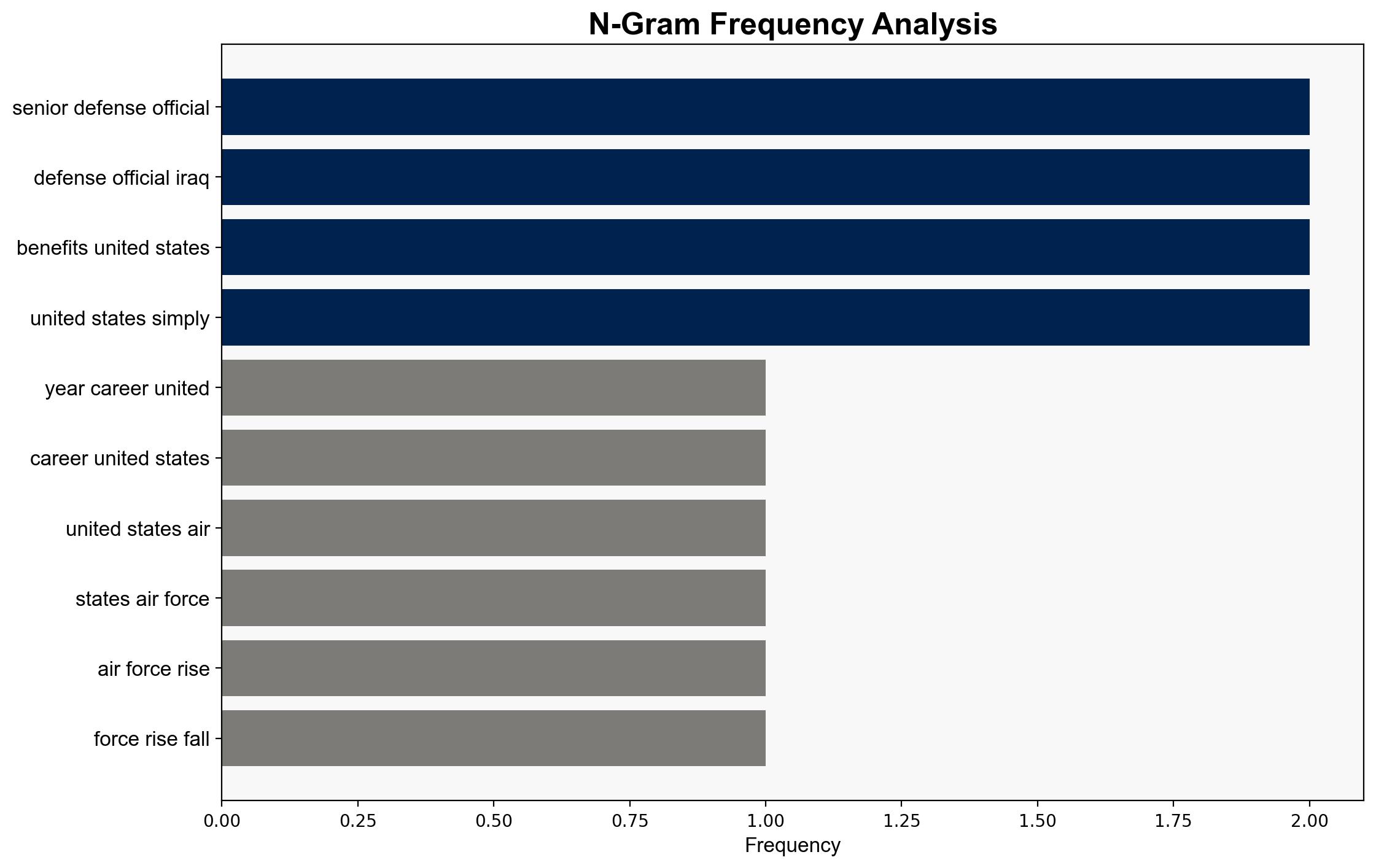Setting conditions for a Middle East that can benefit the United States – Wnd.com
Published on: 2025-07-13
Intelligence Report: Setting conditions for a Middle East that can benefit the United States – Wnd.com
1. BLUF (Bottom Line Up Front)
The report evaluates the strategic conditions necessary for the United States to derive benefits from its involvement in the Middle East. Key findings suggest that past efforts have often resulted in resource drain without substantial strategic gains. Recent developments under previous administrations have shown potential for positive change through economic ties and strategic alliances. Recommendations focus on leveraging these relationships while avoiding entanglements with unreliable partners.
2. Detailed Analysis
The following structured analytic techniques have been applied to ensure methodological consistency:
Causal Layered Analysis (CLA)
Surface events include the rise and fall of geopolitical powers and military engagements. Systemic structures involve economic partnerships and military alliances. Worldviews reflect a shift towards economic collaboration over military intervention. Myths revolve around the enduring instability of the region and the potential for strategic realignment.
Cross-Impact Simulation
The simulation indicates that strengthening economic ties with countries like Saudi Arabia, the UAE, and Qatar can lead to regional stability. Conversely, lifting sanctions on Syria without robust monitoring could reignite support for terrorist activities.
Scenario Generation
Scenarios range from a best-case scenario of increased regional cooperation and economic growth to a worst-case scenario of renewed conflict and instability following policy missteps.
Network Influence Mapping
Key influencers include regional powers and non-state actors. Mapping reveals that economic partnerships can counterbalance adversarial influences.
Narrative Pattern Analysis
Ideological narratives promoting regional cooperation are gaining traction, while those advocating for conflict are losing credibility.
3. Implications and Strategic Risks
The primary risk involves potential over-reliance on partnerships with nations that may not align with U.S. interests. Economic dependencies could also lead to vulnerabilities in geopolitical negotiations. Cybersecurity threats and regional conflicts remain persistent risks.
4. Recommendations and Outlook
- Strengthen economic ties with reliable regional partners to foster stability and mutual benefits.
- Implement stringent monitoring mechanisms when lifting sanctions to prevent the resurgence of terrorist activities.
- Develop a balanced approach that combines economic engagement with strategic military presence.
- Scenario-based projections suggest focusing on economic diplomacy as the most likely path to sustainable influence.
5. Key Individuals and Entities
Donald Trump, Ahmed al Sharaa
6. Thematic Tags
national security threats, cybersecurity, counter-terrorism, regional focus




